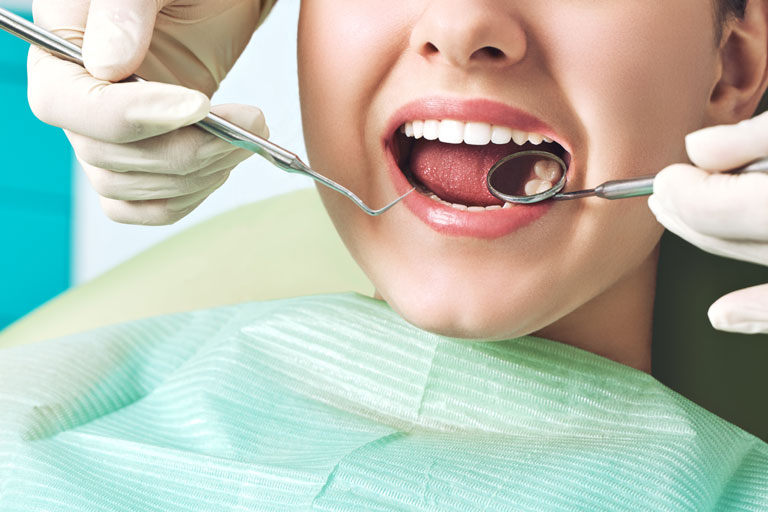According to the National Sleep Foundation, about ninety million Americans snore while they sleep. Apart from disturbing the people around you, snoring may indicate serious problems. In fact, many studies show that poor quality sleep can have a negative impact on numerous health factors, from weight gain to impaired cognitive function. The simplest, snoring is the clearest indication that you cannot get a good sleep. We could say that improving sleep quality and reducing or eliminating snoring is one of the best ways to improve overall health, including oral health and dental health.
Is Snoring Really Bad?
Beyond disturbing the person sleeping next to you, snoring is a sign of sleep apnea and an inability to breathe comfortably while sleeping. This situation is more common than before; some studies now show that even one in every two women has breathing problems while sleeping.
There are two types of sleep apnea: the first one is “obstructive sleep apnea”, where the upper respiratory tract is blocked to a level where air flow is largely or completely stopped while sleeping, and the second is “central sleep apnea”, where the brain does not give signals that the body needs to breathe.
If you have a snoring problem, this is bad news for your overall health. Sleep apnea can increase the risk of daytime insomnia, difficulty concentrating, high blood pressure, heart attacks, and strokes.
Apart from that, recent research shows a direct relationship between sleep quality and oral health.
In a 2017 survey of 230 dentistry students, it was proved that people with poor oral health tend to have more sleep disorders and fatigue, and that people who use regular dental floss also have better rest.
How Does Poor Quality Sleep Affect Oral Health?
If you have obstructive sleep apnea, you are probably grinding your teeth while you sleep. A 2015 study suggested that the occurrence of obstructive sleep apnea is associated with teeth grinding, and even some cases of bruxism (teeth grinding) can directly cause apnea.
Teeth grinding is one of the indicators that your body is exerting strength to breathe again. In these cases, due to teeth grinding, your jawbone and teeth may be damaged, your gums may recede, the risk of cavities may increase and your teeth may become sensitive. Apart from this, this situation may cause chronic pain in your jaw. If you snore, that means you are breathing through your mouth while you sleep, and mouth breathing can also cause many different problems.
Mouth breathing causes dry mouth in the first place. This increases the risk of decay as your teeth are not covered with saliva, as when you are awake. This is very important. Because saliva plays a very important role in the remineralization process, which helps to restore dental health and prevent caries that may occur. Also, breathing through the mouth lowers the pH level, creating a more acidic environment in the mouth. This causes erosion of the enamel and damage to the teeth. Bad smell in the mouth can also be an unexpected side effect of mouth breathing; because of dry mouth, certain types of orally ingested harmful bacteria multiply uncontrollably.
Additionally, in a study conducted in 2012 and 2013, approximately 30,000 patients were examined and more than 11,000 were found to have sleep disorders. These patients had a higher rate of gingivitis due to sleep disturbance. These rates were at a level that could increase the risk of cardiovascular disease.
In short, dry mouth, which is one of the side effects of snoring, is extremely unfavorable for the oral microbiome.
Six Reasons for Frequent Snoring
Before we look at how to stop snoring, let’s see how it started.
From an anatomical point of view, snoring occurs when the muscles in the soft palate, tongue and throat relax when transitioning from Non-Rem sleep (light sleep) to Rem sleep (deep sleep). Later, these muscles partially close the respiratory tract, causing a vibration when you breathe, which is called “snoring”. And snoring becomes more severe as the airway is closed further.
Of course, not everyone snores. There are some specific reasons that cause the airway to close while sleeping. The following reasons cause respiratory tract closure and therefore snoring:
- The natural shape of the mouth and sinuses: The human airway is only a straw long and also bends at a 90-degree angle (think of the angle from your mouth to your throat.) And where the bend of the throat is, the airway narrows further. When your muscles are tense and awake throughout the day, this is not a problem, but when you sleep, the muscles start to relax, which causes snoring. For people with larger sinuses, tonsils, or similar problems, these problems are even more severe.
- Alcohol use: Alcohol causes the muscles in your mouth and throat to relax more, which can cause snoring.
- Problems in the sinuses and nose: A blockage or a curved nasal septum can also contribute to blockage of the airways and therefore snoring may occur.
- Fatigue: If you often do not get enough sleep, when you can finally fall asleep, your sore muscles can loosen further and cause snoring.
- Sleeping position: When you lie on your back, gravity can narrow your airway, which increases the risk of snoring.
- Sleep apnea: As we mentioned, due to sleep apnea, the airway may be blocked during sleep or the signals that tell the brain to breathe may be interrupted. Snoring occurs when the body tries to breathe.
How Can I Tell If I’m Snoring?
The simplest way to do this is to ask your spouse, lover, sibling or friend with whom you share the same room/house if you snore. But if you’re looking for a more precise confirmation and perhaps looking for the underlying causes of your snoring, your doctor might recommend a sleep study.
Ways to Stop Snoring
While some may be trial and error, by following the tips below, you can make a significant impact on snoring or even stop it altogether.
- Reduce alcohol consumption: Reduce or stop drinking alcohol. Especially try not to consume alcohol close to bedtime.
- Establish a sleep pattern and stay connected: Try to get a regular, restful sleep.
- Use a pillow: Putting your head on the pillow instead of on a flat surface can be a quick and easy way to stop snoring, especially if you tend to sleep on your back.
- Use a nasal spray: If your nose is blocked and you cannot breathe easily, we recommend using a spray to open your nostrils. You can especially prefer sea/ocean water.
- Try taping your mouth: This is the first time you hear mouth taping? It is simply the process of sticking a tape to the mouth to encourage your body to breathe through your nose. This will improve your overall health by minimizing the risk of snoring. It helps to eliminate high blood pressure, anxiety, depression and their effects.
If you feel uncomfortable when you tape your mouth or are afraid of removing the tape while sleeping, it is useful to consult an otolaryngologist about why you have difficulty breathing through your nose.
Of course, it is very normal that you do not want to try this with the so-called duct tape. For this, I recommend you the tapes that are used in the market for this purpose and will not harm your mouth or skin.
As a result; dentists are only just beginning to discover the effects of snoring on patients, but it is clear that poor quality sleep harms oral health. If you want to stop snoring, it’s a good idea to talk to your dentist to identify the root cause of the problem and cure it.






